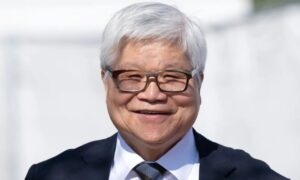According to a senior government official, Taiwan Semiconductor Manufacturing Company’s (TSMC) plan to relocate some of its chipmaking facilities overseas will be “very beneficial” for the country because it will enable the chipmaker to work more closely with customers and aid in attracting the best talent.
TakeAway Points:
- TSMC plans to relocate some of its chipmaking facilities overseas.
- Taiwan’s Deputy Minister of Economic Affairs had earlier said that semiconductor investment overseas is actually very beneficial to Taiwan, both economically and from a security aspect.
TSMC Foreign Investment
As TSMC establishes factories abroad, concerns about Taiwan’s manufacturing dominance waning have seeped into local commentary and appeared in opinion pieces in newspapers. Being the largest contract chipmaker in the world, Apple and Nvidia are dependent on TSMC for their key products. The island’s vital role in the semiconductor supply chain is considered a crucial component of its global security.
CC Chen, Taiwan’s Deputy Minister of Economic Affairs, said on May 21. “Our semiconductor investment overseas is actually very beneficial to Taiwan, both economically and from a security aspect.”
“First of all, they are close to their customers and they are close to the best talent—the best and the brightest. And thirdly, they will work with their customers to develop the most advanced, most needed technologies.” Chen added.
In a similar vein, TSMC CEO CC Wei stated in 2022 that it is difficult to duplicate Taiwan’s semiconductor sector elsewhere because TSMC’s success was built over more than 30 years with assistance from its suppliers.
Global Chipmaking Growth
Globally, major countries are scrambling to increase domestic chip production in order to prevent another wave of supply shortages that cost businesses hundreds of billions of dollars in sales. These initiatives also serve as a buffer against rising hostilities in the Taiwan Strait as China continues to assert its territorial claims over Taiwan. When it comes to assisting with semiconductor development, TSMC and Samsung Electronics of South Korea have been the most sought-after partners.
The Hsinchu-based company TSMC has now committed to constructing three state-of-the-art plants in Arizona, with a total investment exceeding US$65 billion. US grants and loans totaling US$11.6 billion are expected to be provided for the project.
Production of chips employing 2-nanometer (nm) or more sophisticated technology is anticipated to begin at the third US plant before the end of the decade. It is anticipated that TSMC will begin producing 2nm semiconductors in Taiwan the following year.
TSMC receives Approval from Taiwanese Government
According to Chen, TSMC is now authorised by the Taiwanese government to manufacture less sophisticated 3nm, 4nm, and 5nm chips in the US; but, Taipei must approve the plan before the company can begin producing its most sophisticated chips abroad. According to him, Taiwanese authorities will assess foreign investments in light of economic and national security factors.
Although US officials, such as Secretary of Commerce Gina Raimondo, have supported TSMC’s application to roll out its newest technology on US land, the minister stated that he cannot forecast the government’s decision in this regard.
Although TSMC has been dealing with labour concerns, the US government expects the Taiwanese chipmaker to help bring advanced chip manufacturing back to the US. One of the largest challenges facing the chipmaker, according to Chen, is the management of the Arizona operation.
“They are becoming more internationalised. The information on management is something they need to pick up – how to manage an overseas subsidiary and then how to manage their activity or their talents and to be very in compliance with the local regulations and a different culture,” he said.
China is no longer Taiwan’s top commercial partner, since Taiwanese businesses are shifting their manufacturing lines away from the country. Because the two parties work closely together in the global supply chain, Chen described their partnership as “mutually advantageous.”
“We think it’s good to maintain stability and also to have working relations and collaboration in terms of trade investment with the People’s Republic of China. However, we also need to diversify our market and to become more resilient.” he added.

































